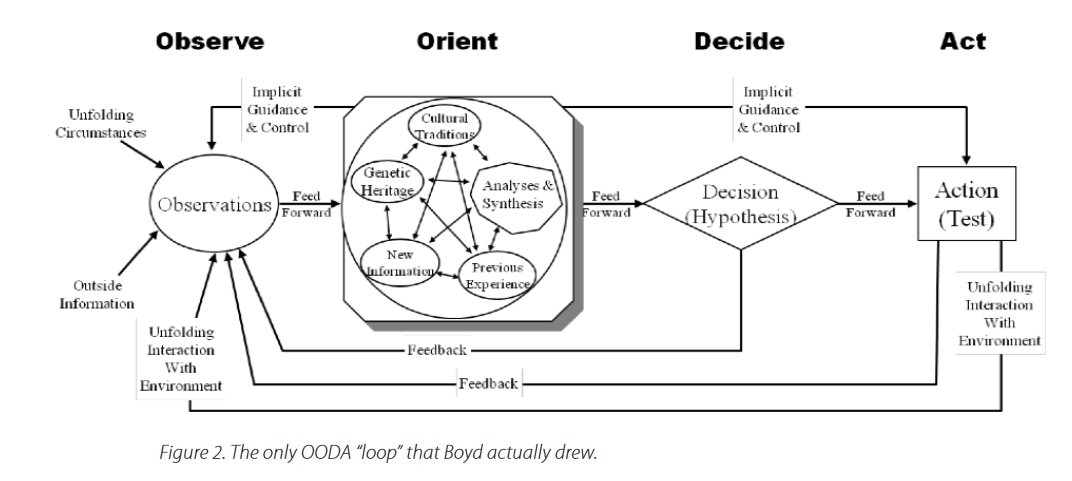
A useful strategic framework for thinking about startups comes from the work of military strategist John Boyd. His OODA "loop" was developed to explain why some pilots won in air combat, but works as a profound mediation about dealing with uncertainty & using pacing to win 1/5 



The basic idea is that, in combat, pilots go through repeated cycles of:
👁️Observation, gathering data
🧠Orientation, analysis of data, drawing on background & mental state
↔️Decision, choice of action to take
🎆Action, making a decision happen
Whoever does the loops faster, wins
👁️Observation, gathering data
🧠Orientation, analysis of data, drawing on background & mental state
↔️Decision, choice of action to take
🎆Action, making a decision happen
Whoever does the loops faster, wins
Boyd argued that the loop applies to companies, too. If you can "get inside the OODA loop" of your competitor, you have the advantage. By the time they even notice a market is there, you have identified an opportunity, gathered data, tried an approach, and learned from mistakes.
Researchers & managers have developed a suite of approaches that companies can take to tighten their OODA loops, for example: design thinking for ideation; experiment-driven methods & lean startups for early exploration; and agile for product development. cbinsights.com/research/direc… 

Boyd's theories are complex (and ultimately become overly speculative and grand for my taste ), but the core ideas are very powerful. They and best described in this paper from a friend of Boyd (which has lots of examples), which focuses on the OODA loop. fhs.brage.unit.no/fhs-xmlui/bits… 

As for some of the techniques in the thread to tighten OODA Loops... If you want to experiment with classic approaches to design thinking, Stanford’s d school has a series of free “mixtapes” that introduce you to various design thinking methods. dschool.stanford.edu/resources/char… 



On methods for rapid startup experimentation, including lean and other approaches, see this thread 👇
https://twitter.com/emollick/status/1460367269679321096
And on doing fast data-driven AB testing to tighten your OODA loop, see this thread on experimentation & Test-and-Roll.
https://twitter.com/emollick/status/1430364056750276615?s=20
• • •
Missing some Tweet in this thread? You can try to
force a refresh



















